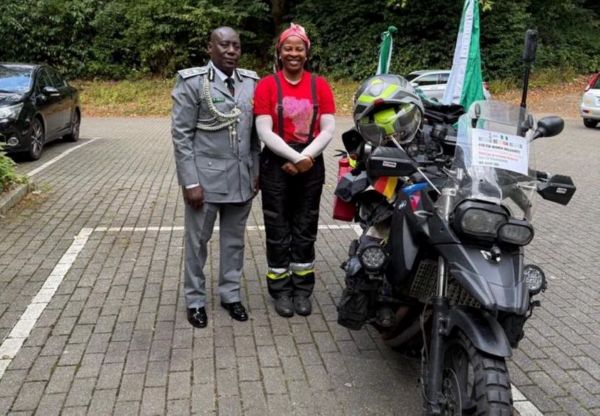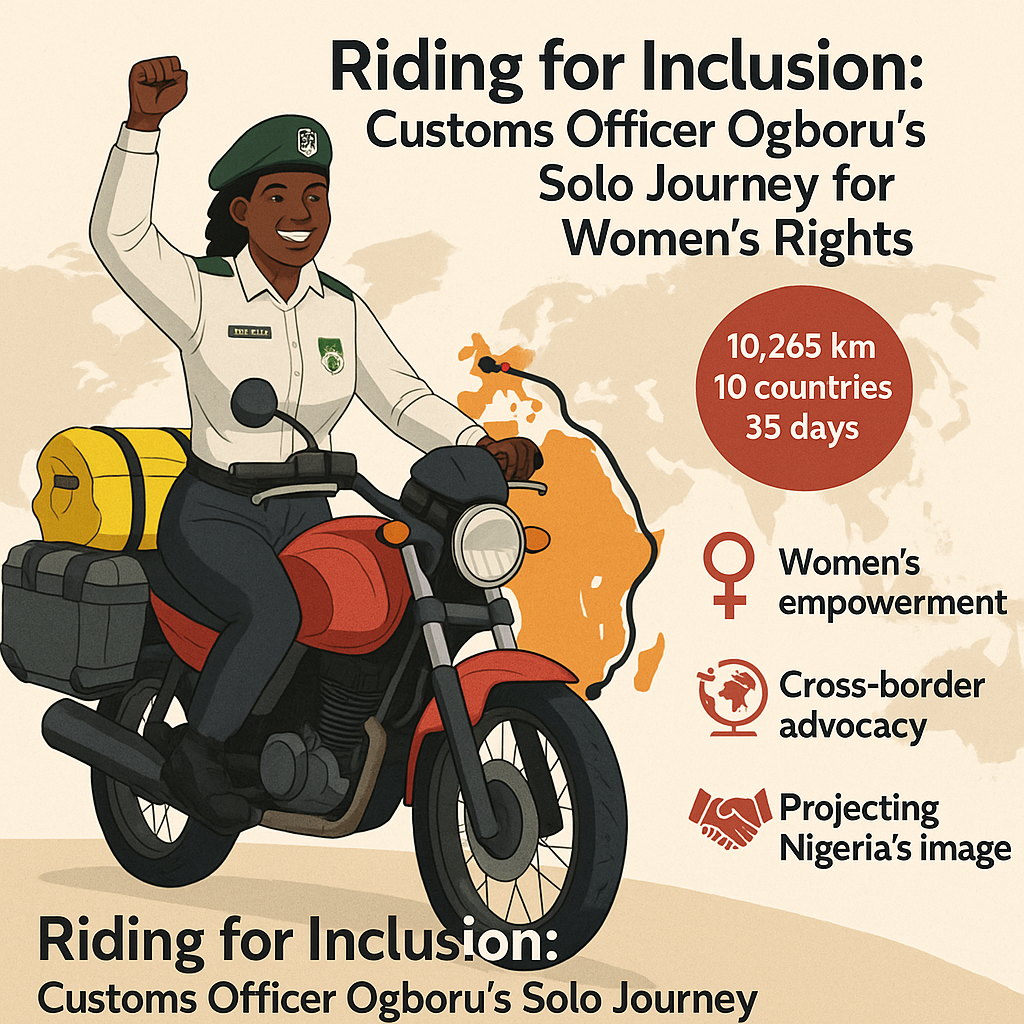Riding for Inclusion: Customs Officer Akpevwe Ogboru’s 10,265km Solo Journey for Women’s Rights

In a world where policy debates on gender inclusion often remain locked in boardrooms, Assistant Comptroller of Customs Akpevwe Ogboru, better known by her trail name Tracta 2, chose the open road as her platform. Over 35 days, she journeyed solo by motorbike from Nigeria to Belgium—covering 10,265 kilometres across 10 countries and two continents—to raise awareness for women’s rights and cross-border research.
Her feat, celebrated by the Nigeria Customs Service (NCS) in Abuja on Thursday, was more than a personal challenge. It was an audacious statement about resilience, mobility, and the role of women in shaping national and global conversations.
🚴 A Journey Beyond Borders
Ogboru began her expedition on August 1, 2025, leaving Nigeria with the theme “Ride for Women Inclusivity and Cross-Border Research.” On September 4, she arrived at the Nigerian Embassy in Brussels, where she was received with jubilation.
Her arrival symbolised more than endurance—it signalled national pride, proof that Nigerian women can carry bold narratives of empowerment across borders.

✊ Women’s Rights at the Heart of the Ride
According to NCS Spokesman Abdullahi Maiwada, Ogboru’s journey spotlighted not only gender parity and girl-child empowerment, but also broader issues of mobility, connectivity, and cultural exchange.
For a service often associated with trade regulation and border enforcement, Ogboru’s expedition injected a new dimension: human-centred advocacy, showing that institutions can stand for both enforcement and inclusion.
🌍 National Image and Global Significance
Customs Comptroller-General Bashir Adeniyi described Ogboru’s courage as a source of inspiration, affirming that the NCS would continue to create space for resilience, innovation, and inclusivity.
Beyond symbolism, such actions strengthen Nigeria’s soft power, project a positive image abroad, and reinforce bilateral relationships—particularly in Europe, where issues of women’s rights, migration, and inclusivity are central to public discourse.
⚖️ Rights, Risks, and Representation
Rights activists have seized on Ogboru’s ride as a wake-up call to policymakers: symbolic gestures must translate into policy reforms, particularly in the areas of women’s access to education, economic participation, and protection from systemic discrimination.
Her journey underscores the broader reality that while Nigerian women have long borne the brunt of economic marginalisation, they are also driving advocacy in innovative ways—whether through boardrooms, classrooms, or even motorbike highways spanning continents.
BRANDECONOMY Takeaway
Ogboru’s ride is a reminder that inclusion requires movement—not just metaphorical, but physical and institutional. Nigeria must now convert such powerful symbolic acts into policy frameworks that secure lasting change for women and girls.
In the end, her journey tells the world that the push for inclusivity is not just a conference agenda—it is a road that must be travelled, however long, however difficult.










